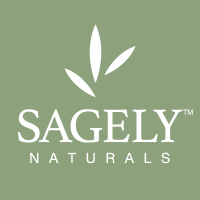Based in Santa Monica, California, Sagely Naturals was founded in the summer of 2015, with the goal to produce a sustainably sourced, topical CBD cream with no psychoactive effects to treat daily aches and pains. The co-founders, Kerrigan Hanna and Kaley Nichol, have extensive backgrounds in the food service industry, and as a result they pride themselves in quality controls and proper safety procedures. Since the launch of Sagely Naturals, they have been selling their Relief & Recovery Cream online and in a wide variety of retail outlets beyond just cannabis dispensaries. Their ability to distribute outside of dispensaries is due to the fact that the product’s active ingredient, Cannabidiol (CBD), is derived from hemp, instead of cannabis with higher levels of Tetrahydrocannabinol (THC).

Their attention to detail in consistency and quality makes them stand out as cannabis processors, using a contract manufacturer with good manufacturing practices (GMPs) along with the proper standard operating procedures (SOPs) in place. “All of our contract manufacturer’s corrective and preventative actions (CAPAs) are outlined in the company’s SOPs, which are in place for everything including specific manufacturing processes, receiving and shipping materials and testing batches,” says Hanna. “The contract manufacturer also provides certificates of analysis (COAs) for every product they make.” According to Hanna, they exclusively use current GMP-certified facilities. One such SOP lays out the responsibilities for the quality control department in order to release and approve ingredients of their products.
There are some SOPs that could pertain specifically to the processing of hemp or cannabis products, according to Hanna. “Receiving and handling raw materials like hemp, batch coding, the actual formulation and manufacturing process, quality controls and cleaning and sanitation [could be tailored to pertain to cannabis],” says Hanna. Proper SOPs laid out in the manufacturing process include the cleaning and sanitation of machines, as well as adjusting settings, formula ratios and initialing and dating product labels on every batch, among more specific operating procedures.

According to the co-founders, they spent a large amount of time vetting their hemp supplier, making sure they are using cutting-edge technology, growing it sustainably, and adhering to strict SOPs. “The team includes a Ph.D. chemist, who also is a founding member of our supplier and extractor,” says Hanna. “We work with CO2 extraction because we wanted the most control over the compounds that end up in our product. We are able to purposefully choose which cannabinoids end up in our product.” Through supercritical carbon dioxide extraction and post-extraction processing, the team is able to eliminate any trace of THC, guaranteeing the consumers will receive no psychoactive effects.
In looking toward long-term growth, the co-founders emphasize the importance of environmental sustainability. “Having honest ingredients is one of our company missions along with having honest practices,” says Hanna. “None of our ingredients are tested on animals so we are an animal cruelty-free organization.” Their hemp is grown using organic and environmentally friendly practices. “We prioritize using plant-based ingredients, so the formulation of our Relief & Recovery Cream relies on using organic and raw materials—such as essential peppermint and safflower oil.” Companies like Sagely Naturals using contract manufacturers to process hemp could represent the future of the cannabis industry. When safety, sustainability and quality issues come into the spotlight more, so will the need for outlined SOPs, proper documentation and extensive lab testing.



